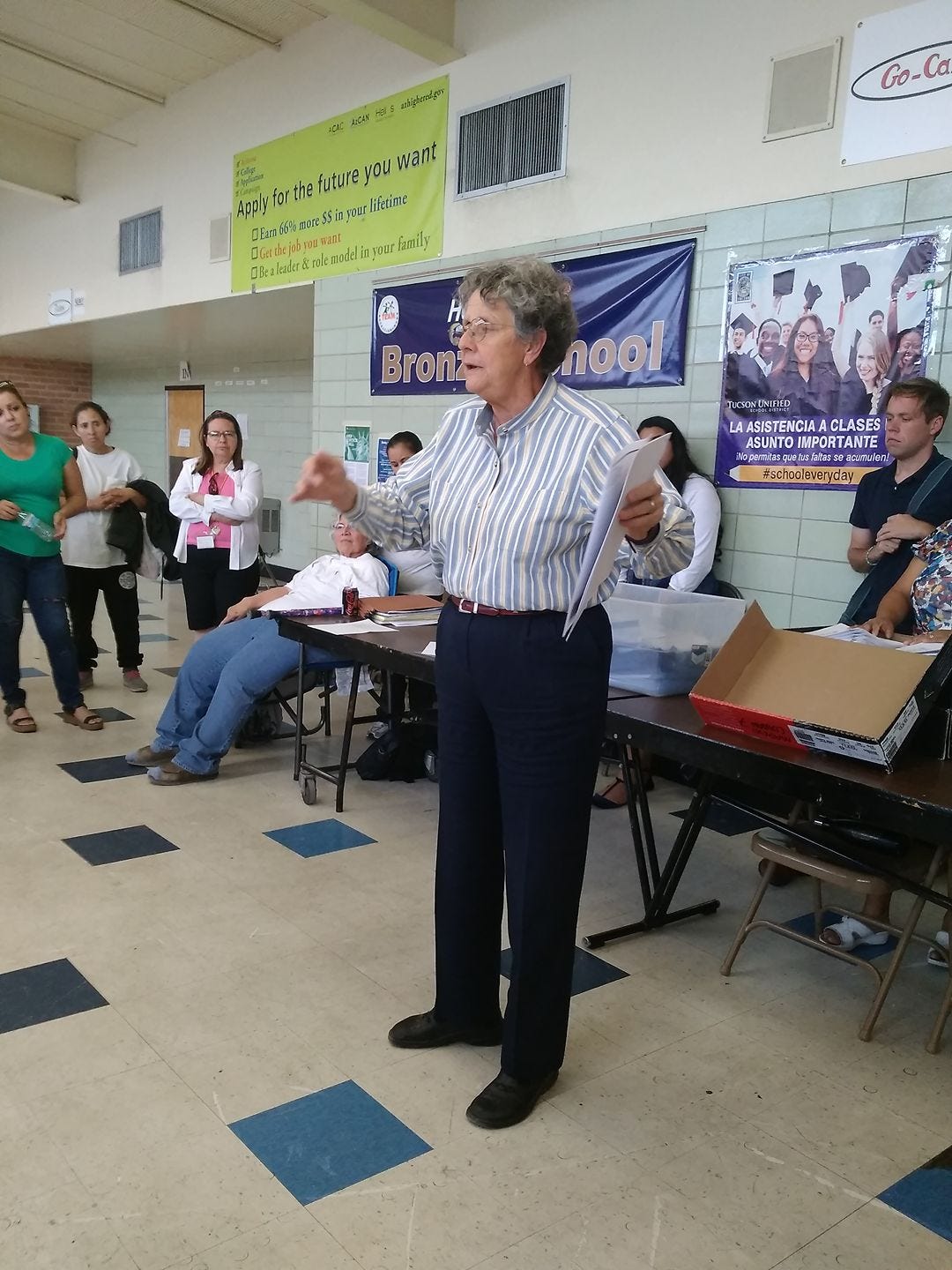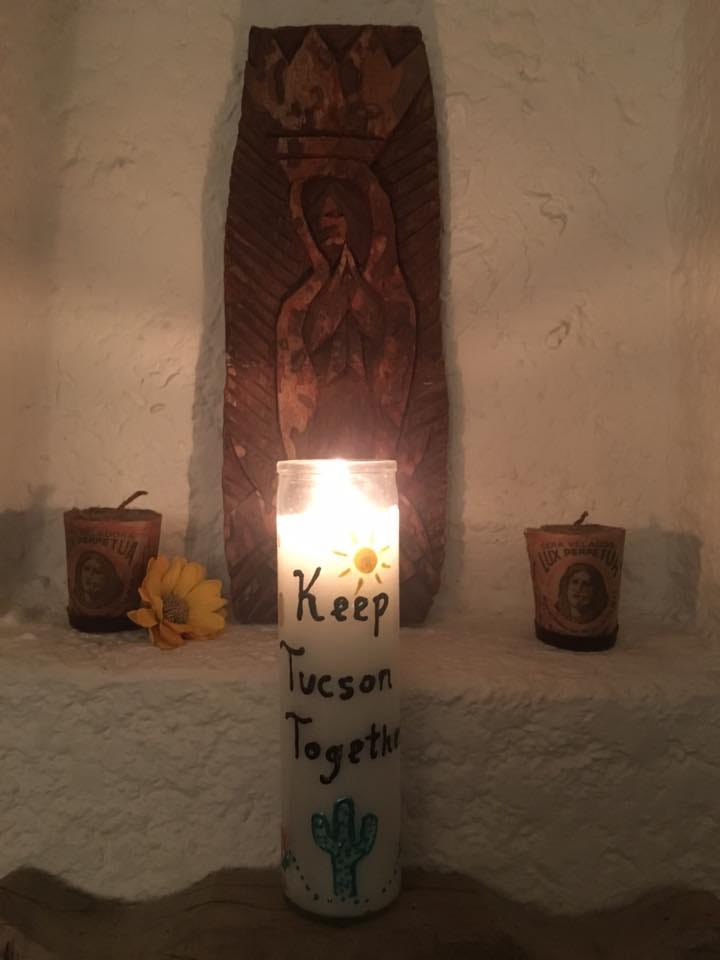In July the Board of Immigration Appeals ordered that prominent federal immigration lawyer and longtime community organizer Margo Cowan be barred for two years from practicing law in immigration court for “violating the rules of professional conduct.” For this week’s podcast interview, The Border Chronicle caught up with Cowan in her Tucson office to hear her side of the story. This story includes Cowan’s long history of advocacy and organizing in the community—including know-your-rights campaigns in Tucson in the 1970s, work with the Sanctuary Movement and HIV/AIDS awareness in the 1980s, and working for the Tohono O’odham Nation in the 1990s, where she witnessed the onset of border militarization on the native reservation that, she asserts, has now become an “occupied” territory. (By the way, here is the link to Cowan’s book about the Tohono O’odham, cowritten with historian Guadalupe Castillo. We mention the book in the podcast).
Throughout the conversation, Cowan talks about her work as a public defender, work that led to the founding of the organization Keep Tucson Together in 2011. KTT is a pro bono legal clinic whose mission is to stop deportations and family separations in southern Arizona. In the interview, Cowan explains the two-year ban and how she is appealing the ruling, and she vividly describes just how intimidating immigration court is. “I hate immigration court,” she says. “I hate what they do to our community. I hate the fact that they are cloaked in some quantum of respectability. But, having said that, people need representation.”

















“People Need Representation”: A Podcast with Immigration Lawyer Margo Cowan